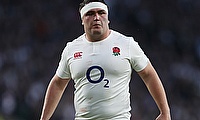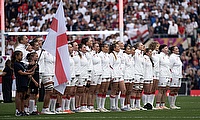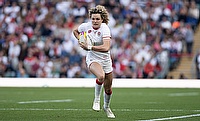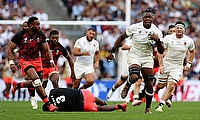Super Rugby in Britain?
As the Rugby World Cup draws ever closer all of the home unions are trying to find ways to overcome the Southern Hemisphere superpowers who have dominated the tournament, with the exception of England in 2003 the World Cup has been won by South Africa, Australia or New Zealand.
It has been said that the Southern Hemisphere produce players who are far more skilful, intelligent and physical than the players that the British nations can ever hope to produce. But we have shown that we can produce players who are just as skilful; the likes of Brian O'Driscoll and Jamie Roberts proved in 2009 that they are as good if not better than their counterparts from South Africa. But in the test match arena the Southern Hemisphere players seem more prepared and confident in their ability than their opponents, so why do the players seem more confident on the biggest stage?
The major difference is that the Southern Hemispheres major domestic competition the Super 15, allows their top players to play with and against each other every week. At the Crusaders Dan Carter plays alongside Richie McCaw and Sonny-Bill Williams, at the Reds Quade Cooper plays with Will Genia and at the Bulls Victor Matfield plays with Bakkies Botha. All of these are potent international combinations that have honed their skills in the Super 15.
The raw physicality and pace of Super Rugby is a perfect breeding ground for test players. Each game replicates the intensity and power of test match rugby; it allows its players to feel the pressure of an international match every week.
Below the Super 15 New Zealand and South Africa have the ITM Cup and the Currie Cup, this competition brings through the younger generation of players and allows them to develop their skills alongside experienced campaigners, and is a launch pad for the Super 15. Players like Sean Maitland and Zac Guildford have thrived in this arena, and have then gone on to big things in Super Rugby.
So could the English game benefit from a franchise style system like Super Rugby?
The Celtic nations have already introduced the regional system which has proved to be extremely successful, the top players from each country play with each other each week. The best example of this is Leinster, the Irish province provides the bulk of the national squad and the likes of Jamie Heaslip, Sean O'Brien, Jonathan Sexton and Brian O'Driscoll play together and can work on their combinations.
So imagine if in England there was a similar system, a Midlands province/franchise would allow would combine the talents of Northampton and Leicester, we would see the likes of Flood, Youngs, Ashton, Lawes and Foden to play together each week. Surely this can only benefit the international side?
The likes of New Zealand have shown that when the transition from club to international level is almost seamless, this is because they are comfortable playing together. This could be the case in Britain. Playing these players together at club level, means that when they get to international camps, they don't have to take time to gel they can go straight into it.
This provincial system would benefit the game at national and regional level, the club system could remain in place and the Premiership could act as breeding ground for the young stars, allowing them to get valuable game time which the currently don't get. The only way to develop their skills is to get them out of the gym and onto the pitch, playing high intensity rugby where they are not afraid to express themselves and play attacking rugby.
Here in Britain we could benefit from our own Super Rugby style competition, let's have England, Ireland, Scotland and Wales top sides playing each other every week. Having these players competing against one another would develop them as players, almost like a mini Six Nations.
A huge problem is that in England the club system is a tradition club sides like Gloucester have a major identity and are a huge part of the community. Because of this I can never see England adopting this system, but I genuinely think that it would benefit the national game immensely.
If we are to compete with the top nations on a regular basis, not just picking up the odd victory, then the club game needs to be reshaped to give our players the best chance of succeeding. It is working in Ireland and Wales, the next step has to be England.








